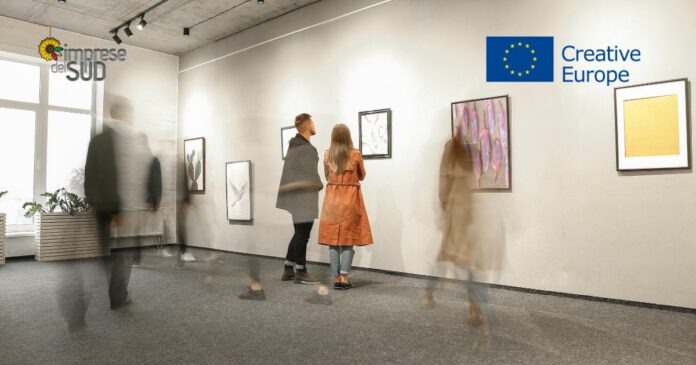The Creative Europe 2024 call for proposals opens, offering funding for transnational cultural projects with a focus on innovation, social inclusion and digitisation. Deadline: 23 January 2024.
The call for European Cooperation Projects in the field of Culture is currently open until 23 January 2024 within the framework of the Creative Europe – Culture Programme.
The main objective of the call is to support transnational projects involving entities active in the cultural and creative sectors in different countries, with the aim of carrying out targeted activities both within and across different fields. Culture and creativity sectors, outside the audiovisual sector, can be the subject of projects.
In particular, in this Creative Europe call, two categories of projects with different scopes are supported:
- Small-scale projects are those involving at least three actors from three different countries eligible for Creative Europe.
- Medium-scale projects are those involving a minimum of five actors from as many Creative Europe-eligible countries.
In contrast to the calls for proposals of the years 2021-2023, large-scale projects will not be funded, in particular those defined as ‘large-scale projects’ involving a minimum of 10 subjects.
Objectives and Priorities of the Creative Europe 2024 Call for Proposals
- Fostering greater transnational creation and circulation of European works of art and artists.
- Improve the capacity of the European cultural and creative sectors: nurturing talent, stimulating innovation, promoting economic prosperity through job creation and encouraging growth.
Projects to be submitted for this Creative Europe call must also address at least one (and maximum two) of the following priorities
- Audience: The priority is to promote broader access to and participation in culture, including the enjoyment of cultural material from countries other than one’s own, in order to involve a wide range of audiences.
- Social inclusion: It is envisaged to promote social resilience by highlighting the crucial role culture plays in determining people’s state of health and well-being, particularly from a mental health perspective. Furthermore, it is intended to improve social inclusion by fostering equal access to culture for people with disabilities or belonging to minorities or socially marginalised groups. Finally, the aim is to foster an intercultural debate.
- Sustainability: To achieve sustainable development, it is crucial to co-create, adopt and disseminate more environmentally friendly practices. By using cultural activities as awareness-raising tools, we can contribute to achieving the goals of the European Green Deal and the New European Bauhaus.
- Digital: The digital transition in the cultural and creative sectors is essential to meet the challenges of artificial intelligence, big data, virtual worlds, blockchain and NFT. We need to help these sectors seize the opportunities that these emerging technologies offer.
- International dimension: Strengthen the capacity of European cultural and creative organisations, including grassroots and micro-organisations, to operate globally.
- Annual priority: Offer support to organisations and professionals working in the cultural and creative sectors in Ukraine.
The maximum duration for each project is 48 months.
To participate in the call, legal entities, public or private, working in the cultural and creative sectors must be established in one of the Creative Europe eligible countries. Countries in this document include EU countries (including OCTs), EFTA/EEA countries, candidate and potential candidate countries and other countries International organisations can also participate in the call.
The emphasis is on the transnational creation and circulation of European works and artists.
The project leader must have been legally established for at least 2 years at the call deadline.
The total budget earmarked for the call is € 59,730,025, broken down as follows
- € 23,892,010 for small-scale projects;
- € 35,838,015 for medium-scale projects.
EU co-financing varies according to project category:
- Small-scale projects: up to 80% of eligible project costs for a maximum of € 200,000
- Medium-scale projects: up to 70% of eligible project costs for a maximum of € 1,000,000
The EU Commission intends to fund around 130 projects.
Deadline: 23 January 2024
Are you interested in participating in the call? Do you have a project that is eligible for funding and are you looking for partners? Fill in and send the form, and we will put you in touch with our consultants for an initial feasibility check of your project.





